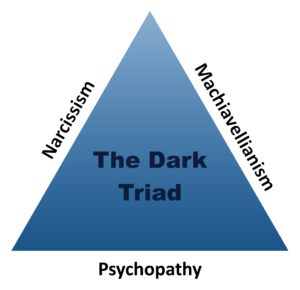Exploring the Dark Side: The Psychology of Malevolent Behavior
Headlines like these are painfully frequent on the daily news:
“Great-Grandmother Devastated After Losing Life Savings in Telephone Scam”, “Pregnant Woman Run Over Saving Her 2-Year-Old Son From Car Thieves”, “5-Year-Old Girl Shot While Attending Vigil For Bronx Shooting Victim”, “A Former Yale Employee Stole 40 Million In Electronics From The University.”
You have to ask, what kind of person would do these things?
Seeking Understanding Through Personality Traits

While motives like personal gain or revenge might explain some behaviors, not everyone resorts to destructive actions. Could understanding the personalities of these people help us understand them better?
In 2002, psychologists Delroy Paulhus and Kevin Williams first proposed that three related, but distinct personality traits are related to antisocial behaviors, ranging from truly pathological behaviors to those that are not criminal, but merely offensive. They called their three personality traits The Dark Triad.
The Dark Triad
Here are the three personality traits of the dark triad. The explanations describe the extreme negative:
- Narcissism: Self-centered individuals who lack empathy but understand others’ motives.
- Machiavellianism: Manipulative individuals focused solely on personal gain, indifferent to moral concerns. (The term comes from a 16th-century work called “The Prince” in which the author, Niccolò Machiavelli, argued that leaders must be cunning, manipulative, and ruthless in order to maintain power and control.)
- Psychopathy: Impulsive people who engage in destructive behaviors without remorse.
Personality traits exist on a continuum. You can score low, moderate, or high on each trait, and it’s possible to show varying levels across the three traits. High scores on the dark triad are linked to criminal behaviors and problematic relationships, while low scores are associated with positive characteristics like empathy and high life satisfaction.
Controversial but Insightful
There is controversy about the validity of the dark triad. Some psychologists claim that the distinctions among the three traits sound good on paper, but there is a lot of overlap in real life. Is some behavior selfish because of strong narcissism or strong psychopathy? Is selfish behavior psychopathic or narcissistic? These sorts of debates are part of normal science, as researchers test and refine their ideas in the face of new data and new ideas. In the meantime, the dark triad is a useful lens for viewing the negative side of human psychology.